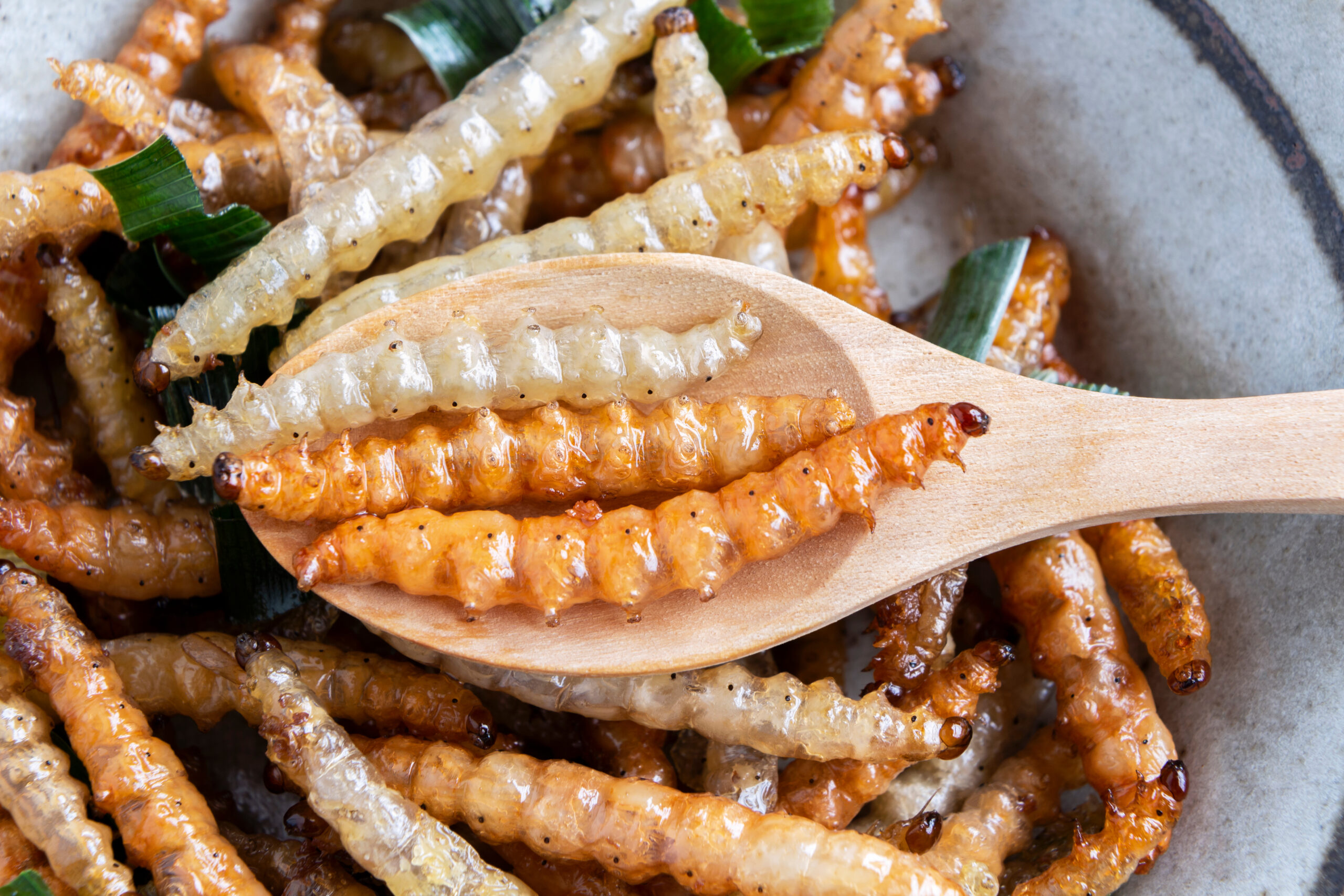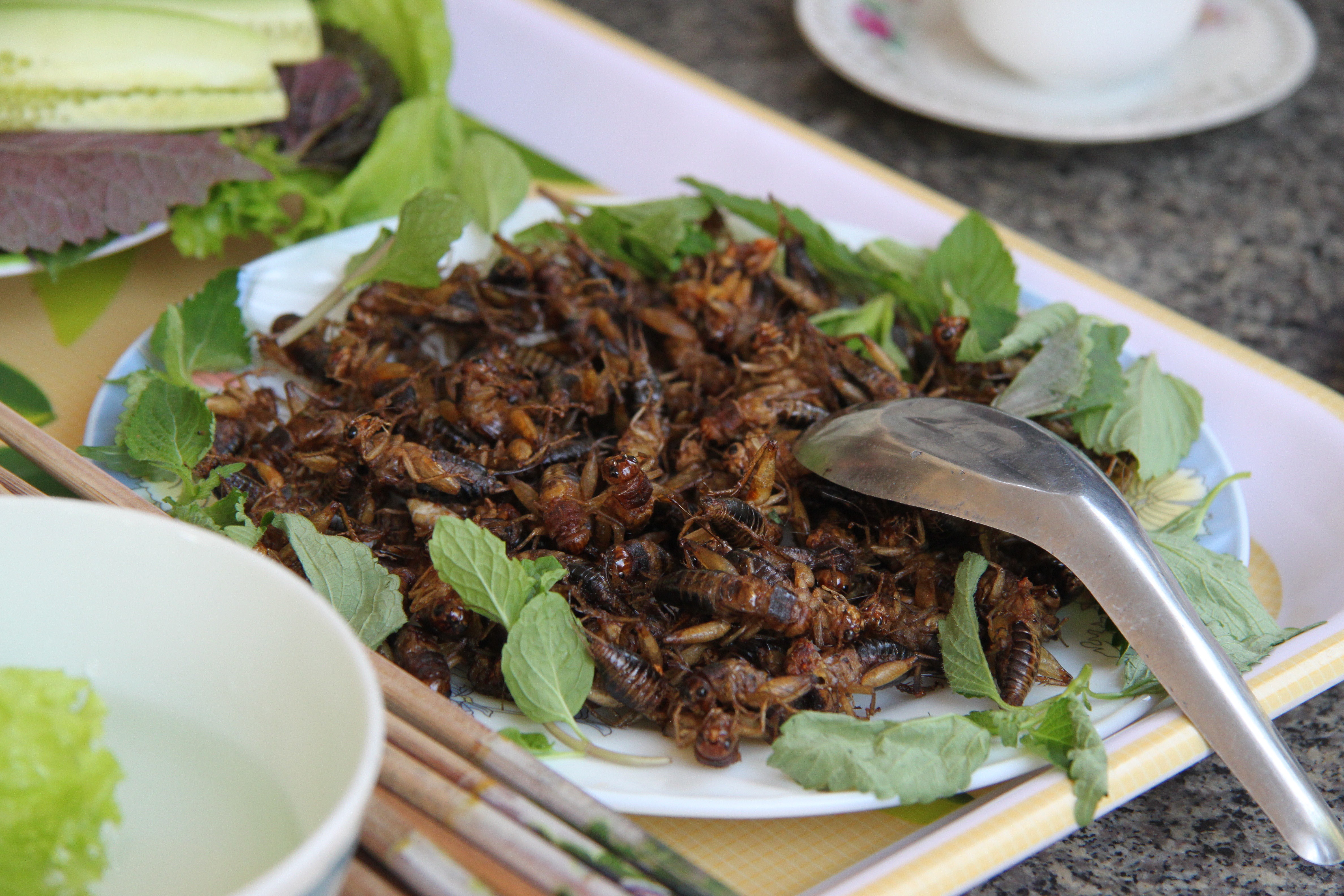A recent study from the Washington University School of Medicine in St. Louis found that eating insects may help decrease one’s risk for obesity and increase their metabolism. Specifically, chitin dietary fiber located in the exoskeleton of many insects can have beneficial effects on the immune system, aiding in weight loss and weight management.
Would you eat insects? Deep fried and ready to be consumed.
Image Source: Richard Allaway
The study was conducted on mice grouped into three categories: those who were not given chitin to ingest, those who were fed chitin but could not digest it fully, and those who were fed chitin and could break it down entirely. It was found that the second group (the mice that could not break down the chitin) exhibited the smallest amount of weight gain, had lower amounts of body fat, and were less likely to become obese. The process of digesting the chitin triggers a response from the immune system that tells the body to produce more enzymes, called chitinases, which break down the chitin. Mice that could break down the chitin tended to produce too many chitinases, which may have diminished the benefits of eating chitin compared to mice that could not fully digest chitin.
Though these mice were specifically treated to eliminate the bacteria in their gut microbiome prior to the experiments, there is also evidence from the German Federal Risk Assessment, Department of Safety in Food Chain that chitin can work in tandem with gut bacteria as a prebiotic to reduce chances of obesity and improve gut health in other organisms. While probiotics are the live bacteria that can be added to one’s diet to aid gut microbial diversity, prebiotics are used to supplement or initiate microbial growth and maintain the balance of a positive gut microbiome. As chitin travels through the digestive system, it can be fermented by gut bacteria to act as a prebiotic.
In addition, chitin can help control cholesterol levels and improve immune function. There is a direct link between diet and gut microbial health, which is responsible for certain chronic illnesses. So, adding insect chitin to diet can boost one’s immune system, aid weight loss, and prevent obesity.
Perhaps the biggest struggle to achieve widespread insect consumption would be many people’s negative connotation with insects in general. However, the amount of land and resources required to produce insects is significantly less than other current protein sources, which would help reduce the food industry’s environmental impact. Because many insects provide nutritional benefits together with necessary dietary fiber, they prove to be an economically viable and ecologically conscious way to reduce obesity risk and improve overall gut health.
Featured Image Source: Pongsak











